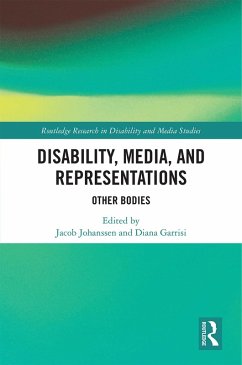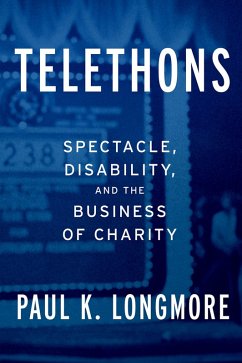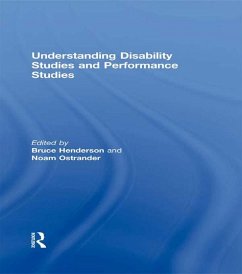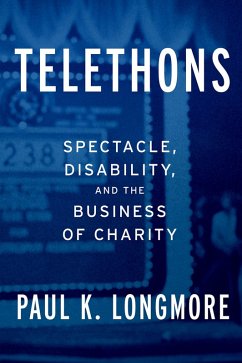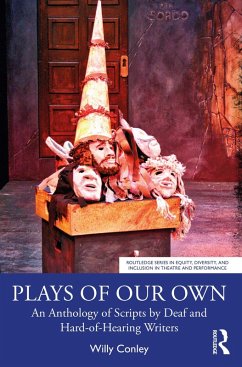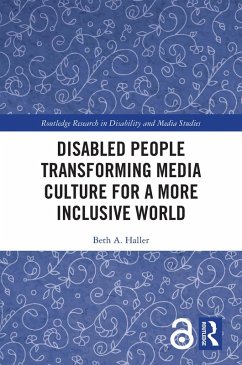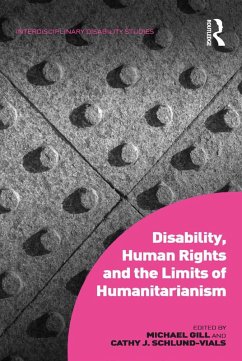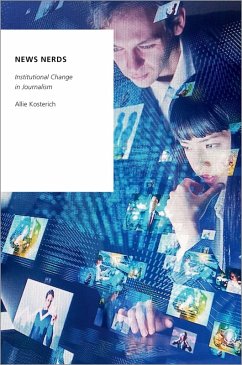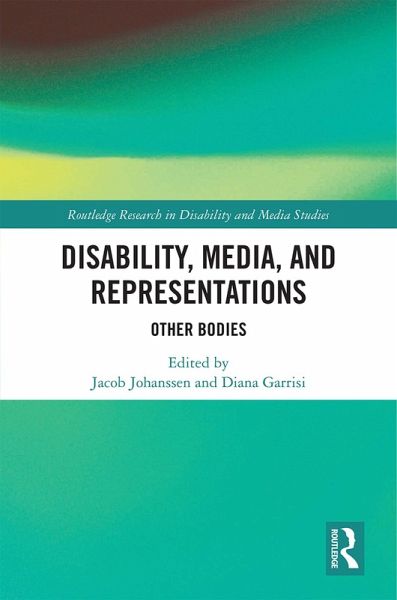
Disability, Media, and Representations (eBook, PDF)
Other Bodies
Redaktion: Johanssen, Jacob; Garrisi, Diana
Versandkostenfrei!
Sofort per Download lieferbar
41,95 €
inkl. MwSt.
Weitere Ausgaben:

PAYBACK Punkte
21 °P sammeln!
Bringing together scholars from around the world to research the intersection between media and disability, this edited collection aims to offer an interdisciplinary exploration and critique of print, broadcast and online representations of physical and mental impairments.Drawing on a wide range of case studies addressing how people can be 'othered' in contemporary media, the chapters focus on analyses of hateful discourses about disability on Reddit, news coverage of disability and education, media access of individuals with disabilities, the logic of memes and brain tumour on Twitter, celebr...
Bringing together scholars from around the world to research the intersection between media and disability, this edited collection aims to offer an interdisciplinary exploration and critique of print, broadcast and online representations of physical and mental impairments.
Drawing on a wide range of case studies addressing how people can be 'othered' in contemporary media, the chapters focus on analyses of hateful discourses about disability on Reddit, news coverage of disability and education, media access of individuals with disabilities, the logic of memes and brain tumour on Twitter, celebrity and Down Syndrome on Instagram, disability in TV drama, the metaphor of disability for the nation; as well as an autoethnography of treatment of breast cancer. Providing a much-needed global perspective, Disability, Media, and Representations examines the relationship between self-representation and representations in either reinforcing or debunking myths around disability, and ways in which academic discourse can be differently articulated to study the relationship between media and disability.
This book will be of interest to students and researchers of disability studies and media studies as well as activists and readers engaged in debates on diversity, inclusivity and the media.
Drawing on a wide range of case studies addressing how people can be 'othered' in contemporary media, the chapters focus on analyses of hateful discourses about disability on Reddit, news coverage of disability and education, media access of individuals with disabilities, the logic of memes and brain tumour on Twitter, celebrity and Down Syndrome on Instagram, disability in TV drama, the metaphor of disability for the nation; as well as an autoethnography of treatment of breast cancer. Providing a much-needed global perspective, Disability, Media, and Representations examines the relationship between self-representation and representations in either reinforcing or debunking myths around disability, and ways in which academic discourse can be differently articulated to study the relationship between media and disability.
This book will be of interest to students and researchers of disability studies and media studies as well as activists and readers engaged in debates on diversity, inclusivity and the media.
Dieser Download kann aus rechtlichen Gründen nur mit Rechnungsadresse in A, B, BG, CY, CZ, D, DK, EW, E, FIN, F, GR, HR, H, IRL, I, LT, L, LR, M, NL, PL, P, R, S, SLO, SK ausgeliefert werden.




